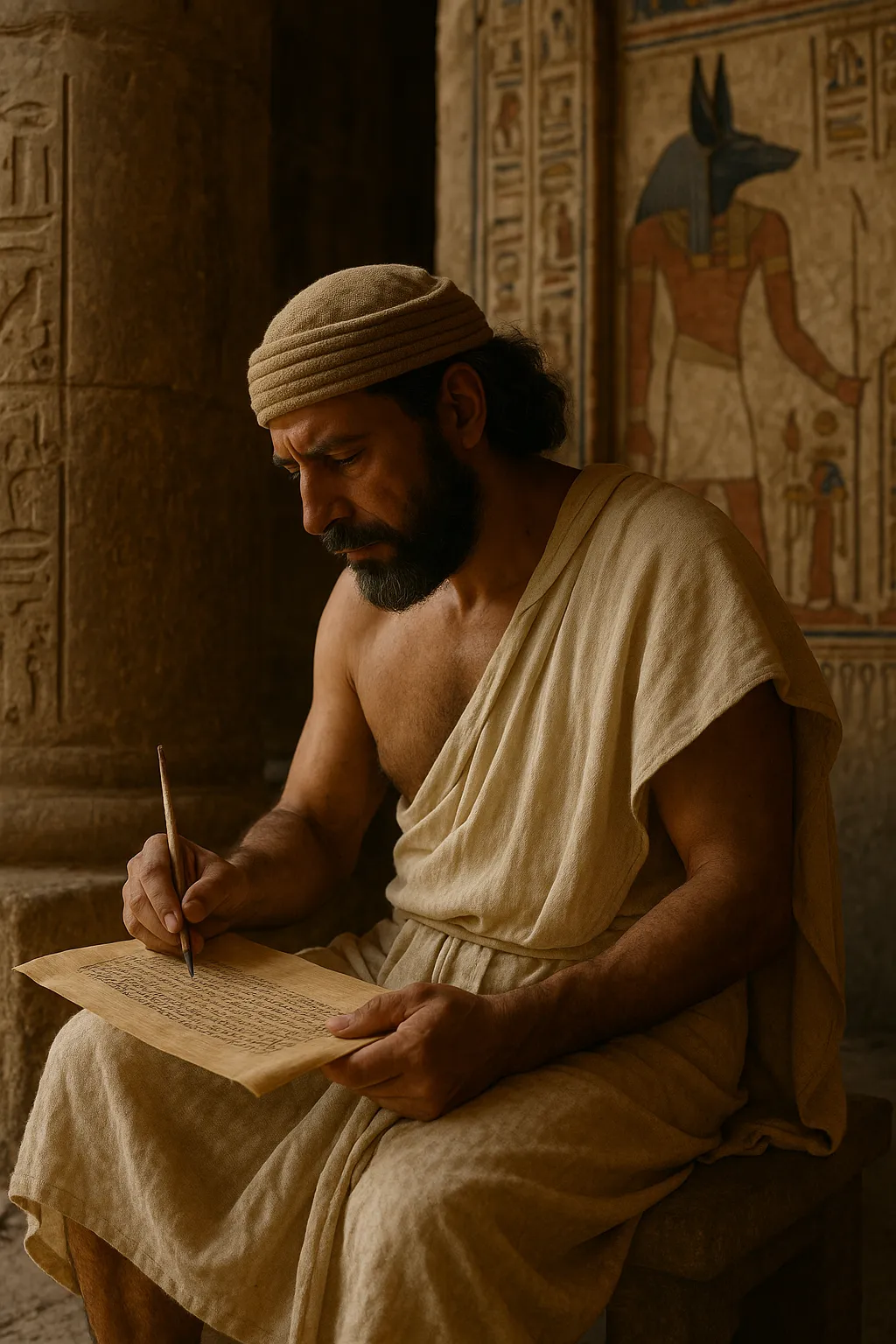The Scribe's Oath in the Age of AI

In his 2017 lecture "The Scribe’s Oath", legendary software craftsman Robert C. Martin—better known as “Uncle Bob”—delivered a call to arms for programmers to act with responsibility, discipline, and moral clarity. Framing modern developers as heirs to the ancient scribes—custodians of knowledge and tools of civilization—he outlined a professional code of ethics, a list of vows meant to elevate programming from mere technical labor to an ethical profession. His “oath” was not a list of best practices, but a declaration of professional identity - we are not just coders—we are scribes, and civilization now runs on our work.
But what happens to this oath when artificial intelligence begins to write the code?
The Ethos of the Oath
Martin’s original Scribe’s Oath consists of nine promises - from refusing to write harmful code to relentlessly improving software, ensuring team support, and always learning. It promotes craftsmanship over convenience, truth over estimation padding, and collective progress over individual ego. The oath is a manifesto for a profession that must answer to society, not just the market.
It draws a clean line - the software engineer is not just a builder but a steward of the digital infrastructure on which lives, livelihoods, and liberty depend. In Martin’s eyes, developers are moral actors shaping civilization.
The Rise of AI and the Cracking of the Frame Artificial intelligence disrupts this framing. With AI systems like GitHub Copilot, Codeium, Amazon CodeWhisperer, Tabnine, Cursor, Replit Ghostwriter, CodiumAI, JetBrains AI Assistant, Codestral, Phind and various large language models (StarCoder2, Code Llama 2, DeepSeek-Coder, Replit Code V1.5, WizardCoder, Phi-2 OctoCoder, Magicoder, PanGu-Coder, Salesforce CodeGen, and many others) increasingly capable of writing, testing, and even refactoring code, the nature of software development itself is shifting. The traditional idea of a “craftsman” painstakingly shaping code line by line is giving way to a new reality - developers now increasingly curate, prompt, and verify machine-generated code.
In this new landscape, the oath still matters—but the responsibilities have changed. The scribe is no longer the sole author of the text - they are the editor, the critic, and perhaps the final conscience of the machine. The oath’s ethical principles must now expand beyond the act of writing code to include the act of supervising AI-written code. Developers must not only write clean software—they must ensure the AI they use does not produce bias, replicate security flaws, or conceal harmful logic.
The New Scribe - Gatekeeper, Interpreter, Architect
The social role of the software engineer also changes. If, as Martin suggests, we were once akin to ancient scribes—rare and literate actors in a largely illiterate world—AI makes “literacy” more accessible. The proliferation of low-code and no-code platforms, natural language programming, and AI copilots means more people can “code” without formal training. In this world, the software engineer’s value shifts from author to gatekeeper: ensuring quality, governance, ethics, and safety in the outputs generated by machines and non-experts alike.
Furthermore, engineers are now tasked with designing systems that learn, adapt, and change after deployment. This introduces a new layer of responsibility. Unlike traditional code, which is static and deterministic, AI-infused systems behave probabilistically and evolve over time. The modern scribe must now be part philosopher, part ethicist, and part risk manager.
Revising the Oath for a New Age
If the oath is to survive, it must evolve. A modernized Scribe’s Oath might include:
“I will take responsibility for the behavior of systems I build, whether written by hand or machine I use.”
“I will understand and mitigate bias, both human and algorithmic, in every artifact I release.”
“I will treat AI as a tool—not a crutch—and remain accountable for its use.”
“I will strive to make technology inclusive, accessible, and just.”
“I will educate others in the ethical use of machine intelligence.”
These additions reflect a growing reality: engineers are no longer just builders, but societal engineers—shaping not only systems, but values.
What Does the Future Hold?
As AI continues to shape the tools, processes, and social dynamics of software creation, the identity of the software engineer is in flux. Yet, the need for ethical grounding has never been more urgent. In a future where systems write code, and decisions are made by models trained on human history, engineers must act as translators between machine logic and human values.
The Scribe’s Oath will not vanish—but it will become more difficult to uphold. And more important. Because the final promise of Martin’s oath—“I will never stop learning and improving my craft”—now includes learning how to live with, build with, and guard against the very systems we have taught to mimic our thoughts.